Is salivary cortisol testing worth the price tag?
There are many ways to check your cortisol level and the salivary method has gained popularity over the years but is it the best way?
In this post, we are going to discuss why you may want to hold out on getting your salivary cortisol levels checked, a different (better and cheaper) approach to testing your adrenal function, and how to proceed with treatment.
Let’s jump in:
Why Check your Salivary Cortisol Levels?
To start our discussion we need to talk about a condition known as “adrenal fatigue”. (1)
Why?
Because this condition is the reason for all the fuss about cortisol and cortisol testing!
Adrenal fatigue is a condition, recognized in the alternative medicine world and not the conventional world, which occurs as a result of chronic and repeated stress.
This stress ultimately impacts your adrenal function and, it’s thought, that it may result in changes to your cortisol levels over time.
The problem with this theory is that it has never been proved in tests, but it does sound good in theory.
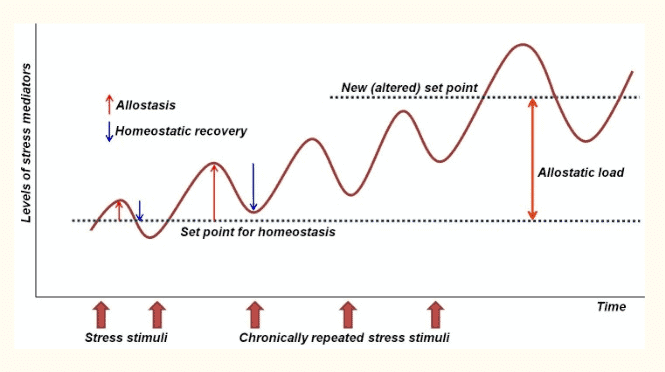
For this reason, many conventional doctors simply don’t believe in the condition which has led alternative doctors to try and find ways to accurately and consistently diagnose the condition.
There is no doubt in my mind that adrenal fatigue is a condition that results from repeated stress on the body, but I don’t think it impacts cortisol levels in the way that most people believe it does.
This means that testing for cortisol may not be as effective as once thought.
It’s traditionally felt that chronic and repeated stress leads to an increase in cortisol levels initially, as the body responds to stress which then fades to a reduction in cortisol over a long period of time.
This trend is said to be picked up with salivary cortisol testing (and perhaps urinary cortisol testing).
Because of this, many alternative doctors and physicians frequently recommend salivary cortisol testing to identify the presence of this condition. (3)
And, it should be noted, that they often do find it.
Reasons to Avoid Salivary Cortisol Testing
Many patients find it frustrating to get treatment for conditions such as adrenal fatigue because they are not recognized by conventional physicians.
This means that when they go into their doctor’s office they may be refused proper testing.
This can leave patients frustrated and they may start looking for help from outside sources.
They are often relieved to find that they CAN test for cortisol via the salivary method, but they don’t realize that there are other ways to assess cortisol as well.
Try to avoid this trap, because you can get helpful information from serum cortisol (you just need to understand how to look at your results).
And while it is true that if you look hard enough for cortisol imbalances you will find them, what’s more important is knowing the value that this information provides.
If you are able to get adequate treatment without this advanced testing, then doesn’t it negate the effectiveness of the test itself?
And that’s exactly one of the main problems with salivary cortisol testing (and even urinary cortisol testing).
The information from the test doesn’t always change how you should look at your treatment or what you should treat with.
When it comes to adrenal fatigue and other adrenal-related disorders, you may be surprised to know that there are actually very few treatment options.
And, to complicate things further, the treatment for low cortisol is almost the exact same as the treatment for high cortisol.
With this in mind let’s talk about the reasons you may want to avoid salivary testing and what you can do instead:
#1. The Results Don’t Change Your Treatment
Whenever you get a test, especially an expensive test, you always need to ask yourself how the results of the test will impact your treatment.
In medicine, we try to stay away from unnecessary tests that don’t give us any extra information about how to treat the patient.
This philosophy should hold true for salivary cortisol testing as well.
If you get your cortisol tested then you better hope that the results of the test will impact how you look at your treatment in some way.
Otherwise, the test is just a waste of time and money.
And salivary cortisol testing doesn’t actually give you information that will dramatically change your treatment (at least not more than what you can get from regular serum cortisol testing).
What do I mean?
There’s really only two results that we care about or that we treat when it comes to your adrenal health.
The treatment for adrenal fatigue and other adrenal-related issues is targeted at whether your cortisol is high or low.
Knowing the degree of cortisol elevation doesn’t change treatment and neither does knowing what time of day your cortisol is elevated (both of these can be seen on salivary cortisol testing).
Why?
Because the standard treatment, whether your cortisol is high or low, is essentially the same.
You’ll need to do the following:
- Ensure that you are getting 8 hours of sleep each night (4)
- Reduce your intake of caffeine (5)
- Take activated B Vitamins (6) – You can find high-quality B Vitamins to help you here.
- Consider using Adrenal Glandulars and Adaptogens (7)
- Consume a healthy diet with sufficient healthy carbohydrates (8)
These treatments don’t change if your cortisol is high or low on salivary testing, it’s always the same!
The only exception is when you have consistently high cortisol levels, (9) which need to be treated slightly differently.
But you can identify the presence of high cortisol with standard serum testing (through blood work).
#2. Treatment is Cheaper than Testing
Another important point worth considering is the cost of the test.
Most salivary cortisol tests are NOT covered by insurance and, as a result, tend to be expensive.
You can get salivary cortisol testing for anywhere from $150 to $300, depending on which lab you look at.
In addition, some Doctors will sell the test to you at a markup to increase the amount of money that they make each time a patient gets it done (making it more expensive on your part).
In almost every case (with few exceptions), it’s actually cheaper, and healthier, to simply undergo the treatment if you have all of the symptoms of adrenal fatigue.
Let me ask you a question:
Do you think it’s ever a bad idea to start eating healthier? To cut back on the number of refined sugars you eat or processed foods that you consume? To cut back on how much coffee you drink?
You don’t need an expensive lab test to tell you the answer!
The only exception is with the use of supplements, but even these are significantly cheaper than undergoing salivary testing.
These supplements may range from $50-$100, but they also contain healthy ingredients such as adaptogens to help you tolerate stress and other B vitamins that you should be consuming anyway.
#3. Serum Cortisol Still Gives Valuable Information
Serum cortisol is often ignored as a way to measure adrenal status, (10) mostly because it’s often ignored by conventional physicians and because, even when your symptoms are severe, it tends to come up as “normal”.
But it still has a lot of value.
There is a wide range of “normal” for cortisol just like there is for any of your hormones, but there is a difference between being “optimal” and being “normal”.
When you look at your results through this lens, you start to see patterns that can help you determine if you have high or low cortisol and how to proceed with treatment.
This should also be understood with the fact that adrenal-related problems probably result from issues relating to cortisol receptor sensitivity (11) and NOT from changes to your serum cortisol levels.
This may explain why so many patients run around with seemingly “normal” cortisol levels even though they have all of the symptoms of adrenal fatigue.

When you apply these “optimal” ranges to serum cortisol testing, and you understand that your serum level may not reflect what is happening at the cellular level, you can learn a lot about your body.
When ordering an 8 am serum cortisol look for these optimal ranges:
- 14-16 mcg/dL = tight optimal range
- Less than 10 mcg/dL = sub-optimal low cortisol level (proceed with treatment trial)
- Greater than 20 mcg/dL = sub-optimal high cortisol level (proceed with treatment trial)
- Between 10-14 & 16-20 mcg/dL = consider treatment but look for other causes of fatigue such as iron deficiency, low B12, poor diet, lack of sleep, etc.
Serum cortisol is not a perfect test, but it can and should be used if you suspect adrenal-related problems.
#4. Serum Cortisol is Covered by Insurance (Salivary Cortisol is not)
Another advantage to using serum cortisol is that it is often covered by insurance which means that it is usually far cheaper than salivary cortisol testing.
Most insurance plans will cover lab tests, including hormones, provided your doctor codes them correctly!
If you have fatigue, other hormone imbalances such as hypothyroidism, or suspicion of adrenal-related issues then your insurance should cover serum cortisol testing.
While you are getting your cortisol tested you can also get assessed for other common hormone disorders such as hypothyroidism and sex hormone imbalances.
#5. Adrenal Glandulars and Adrenal Adaptogens can Help both High and Low Cortisol
If you weren’t already convinced that you didn’t need to order salivary cortisol testing then this one might persuade you otherwise.
Would it come as a surprise to know that most of the treatments for adrenal fatigue, including adrenal adaptogens and adrenal glandulars, help to treat both high and low cortisol levels?
It appears, according to some studies, that these supplements help your body to tolerate stressful situations. (12)
The net result is a normalization of cortisol levels in your body.
That means if your cortisol is high, these supplements may help your body lower cortisol.
It also means that if your cortisol level is low, they may help bring them up.
So, even if you blindly treated your adrenal issues with supplements such as glandulars or adaptogens, there is a fairly high chance that you will help your cortisol level in some way.
What to do Instead of Salivary Cortisol Testing (+ How to Treat)
What should your next steps be?
After reading this I don’t want you to think that it’s unimportant for you to test your adrenals because that is not my intent.
Instead, I want you to consider a different approach to looking at your adrenal function.
One which focuses on using cost-effective strategies designed to help reduce the cost of your therapies while providing you with the best results.
It’s entirely possible that you may need to check your salivary cortisol at some point because standard lab tests are not giving you helpful information.
This could happen.
But, this seems to be the exception rather than the rule.
So what should you do instead?
- Step #1: Get your SERUM cortisol tested first and look at your results with the optimal ranges in mind. Serum cortisol will be covered by insurance and can help you determine if your cortisol is high or low.
- Step #2: If your cortisol is abnormal (high or low) consider proceeding with treatment.
- Step #3: Address lifestyle factors (13) (sleep, stress reduction, diet, and exercise). These changes should result in improvement and should not cost a significant amount of money.
- Step #4: Consider using high-quality adrenal supplements which contain either adrenal glandulars or adrenal adaptogens.
- Step #5: Recheck your serum cortisol after 2-3 months of therapy to see if any progress has been made.
- Step #6: If you still remain symptomatic, or if you feel that something is amiss in your body, consider getting either salivary or urinary cortisol testing.
I’ve had great success in using this adrenal supplement in both patients with adrenal issues (and hypothyroid issues) and this is the one that I personally used while I was recovering from adrenal fatigue.
Conclusion
The information in this post represents my thoughts and feelings on the use of salivary cortisol testing.
I’m always trying to help patients find the best treatment while attempting to reduce the cost of treatment in the process.
I’ve found that by cutting out testing for salivary cortisol (except in certain instances), my results for patients remain the same.
I hope you found this information helpful as you journey towards finding what kind of treatment you need!
Just realize that your adrenal health is very important, but how you go about testing for them is a different story.
Now I want to hear from you:
Have you had your adrenals tested via the salivary route?
Did the information on your test help you with your treatment?
Would you have been able to get results without this test?
Why or why not?
Share your thoughts and comments below!
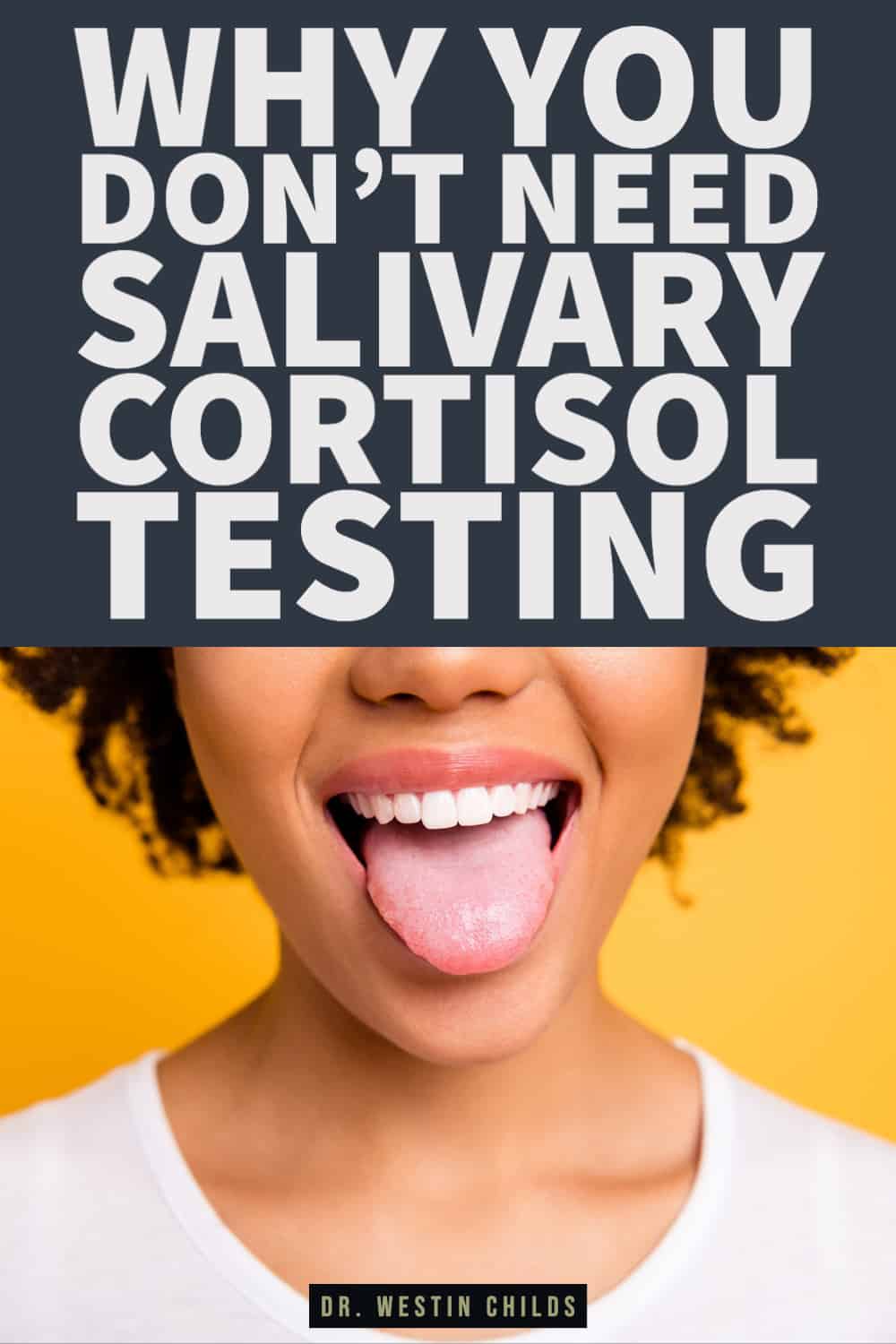
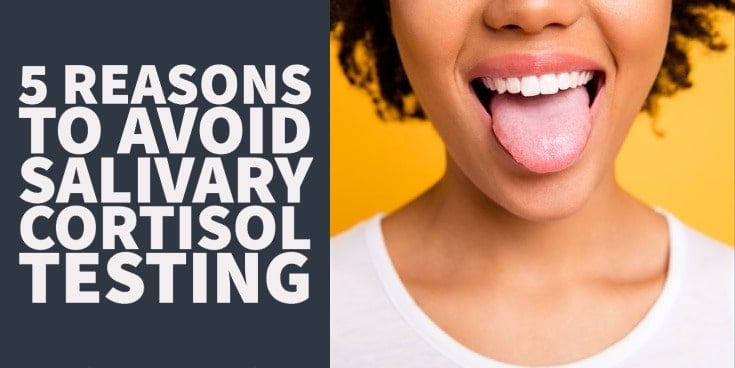
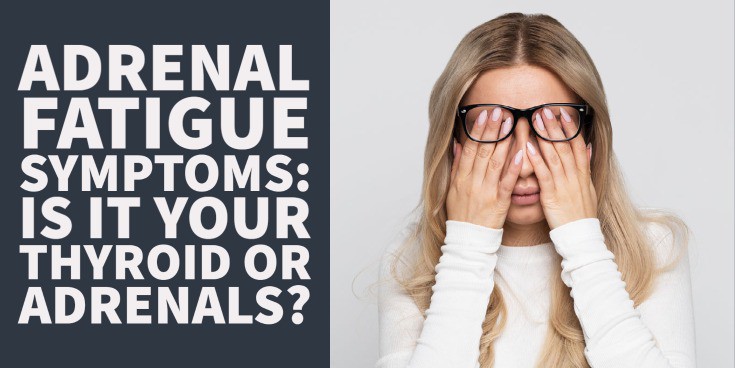
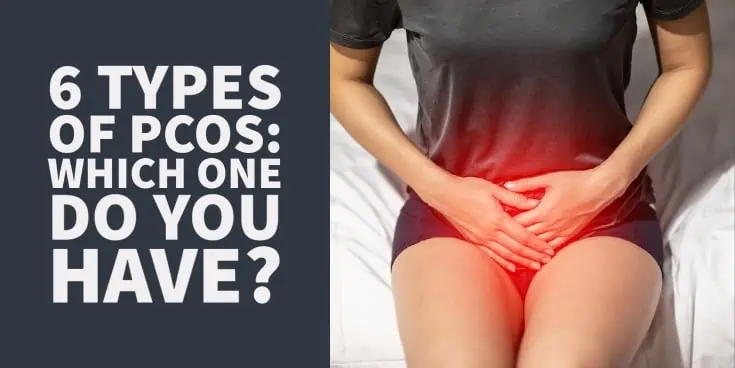


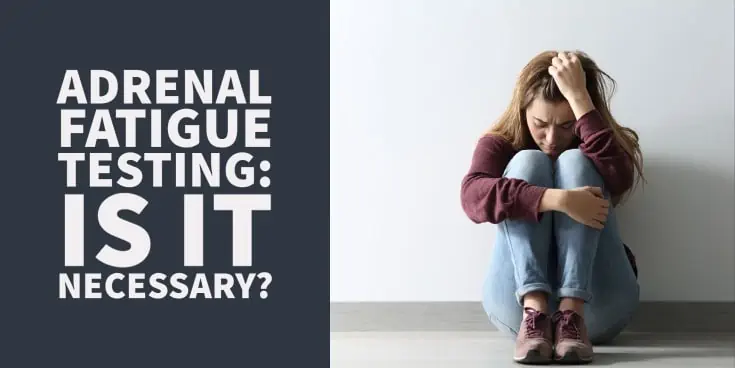
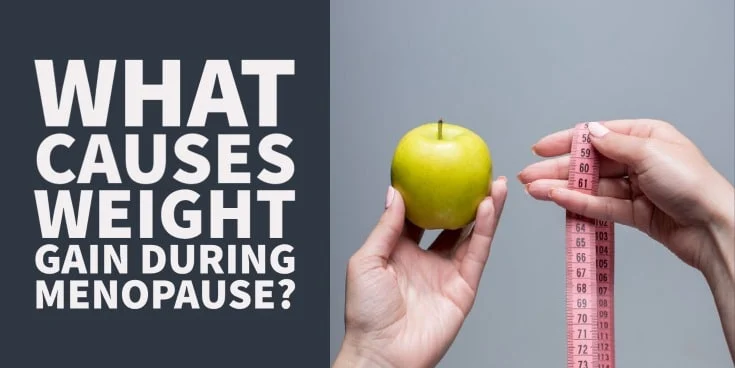

Dr. Childs, I recently was tested for cortisol by applied kinesiology and told it was high. Do you think this is a good way to be tested?
Hi Carolyn,
No, I wouldn’t base treatment on the results from applied kinesiology.
My functional doctor just asked me to do the saliva cortisol test so it’s really funny that this article came to my email today! I am going to go through with it, as he wanted it and we’ll see what happens. I am trying to deal with the issues stated, the adaptogens and sleep better but especially cutting stress. I have Hashimoto’s and still seem to be too tired a lot of the time. We’re treating both issues and have added female sex hormones as well so hopefully, I’ll feel like a new person soon. thanks for your wonderful articles!
Hi Jackie,
It sounds like you are on the right track! Keep us updated on your progress.
My doctor only ordered an am Cortisol test.
Hi Michele,
The 8am serum cortisol test is a great place to start.
The AM blood Cortisol blood test came back low.
That’s pretty much all the information you need to know to start treatment!
I have been running my own labs for the past couple of years to monitor my hypothyroidism and other nutrient levels. It’s super easy to order labs through requestatest.com. A single cortisol saliva test can be had for $99 at LabCorp. Much easier than having to deal with ignorant providers, even if I have to pay out of pocket!
Hi Deborah,
Glad to hear it’s working for you! Thanks for sharing.
I am Andrea Rye and I have Hashimoto’s with gluten and dairy sensitivity and I was just tested to see my current status. The test shows that my antibodies are high. My natural doctor recommended that I take 50-mcg of Levothyroxine I told her I was staying on my glandular (Nature Throid since WPThyroid is no longer available in the US) and would follow recommended diet plans. I ordered your Gut Bomb 350 Billion but I am not clear on how many stick packs to take a day and what time of day to take it. Thank you for your help!
Hi Andrea,
Most people use 1 packet per day x14 days or they use 1 packet every other day for 1 month. I generally recommend that you use 1 per day for the first 14 days then switch to every other day.
Hope this helps!
Hi,
What are your thoughts on hydrocortisone for low cortisol so thyroid meds can be optimized? I have tried HC with mixed results. It’s not the cure all it’s promoted to be with low cortisol.
Hi Joanne,
I generally don’t recommend the use of hydrocortisone because it can be dangerous, it doesn’t work very well and it is fraught with side effects if used incorrectly.
I know an 80-year-old lady who has had to have hydrocortisone many times in her life to deal with some autoimmune issue related to her breathing. It has done a number on her: her face has a permanent uneven reddening and her body looks inflated, saggy, weak, with smaller muscle mass than you would expect on a person her size (though she is a trooper and lives by herself, very much helping out her disabled neighbours on a daily basis and drives herself hundreds of miles away when she has business to attend to).
So no, I would avoid HC at all costs, except really extreme situations. I have a feeling it really messes up your body’s regulatory systems. Much better to follow the healthy living guidelines to optimise cortisol.
Hello, Dr my name is David Seymour, I had emergency brain surgery with a resection for brain cancer treatment that had left me blind and in a wheelchair. I also had lots of chemo and radiation.. my pituitary was fried from the cancer treatment and I already supplement thyroid and testosterone, and growth hormone. I’m confused because my 8 am cortisol and ACTH test both show Mr cortisol levels as being optimal… But the 4 point salivary cortisol test shows I am severely deficient… So which test is right.
Hi David,
Both tests are probably accurate but they are just giving you different information.
The endocrinologist I have seen say that the saliva test isn’t accurate… But with my medical history I believe it is.. so what should I go by if saliva test says that I’m deficient but blood test says I’m not? How can one contradict the other?
Hi David,
Your endocrinologist is looking at it from the perspective of total cortisol level and when he/she thinks of deficiency they are thinking of an adrenal crisis (which you don’t have or you would be hospitalized). It’s a matter of interpretation of the results and how to direct treatment when looking at the tests. Both give valuable information and both can potentially be helpful. I don’t order salivary cortisol tests for all the reasons listed in this article. If you are searching for a treatment based on those results you will probably have to seek a second opinion.
Refer to stopthethyroidmadness.com for analyzing your saliva cortisol test results.
Hi Stefanie,
Thanks for the reference but I am familiar with interpreting the results (I used to order it all the time), I just don’t believe that they are valid and change treatment or management which is why I recommend against getting it. The article above refers to all of the reasons why I believe this to be the case.
Hello Dr. my name is Dené. I received a fasting cortisol blood level at 2pm of -0.5. along with that read was low DHEA, very low progesterone, low thyroid and low estrogen.
Is this enough information for me to get on your program?
Thank you!!
Hi Dene,
Which program are you referring to?
I tried to do the salivary test which requires 4 samples but I didn’t realize how difficult it would be. I had to get off my hormones, adrenal support supps, caffeine, and subsequently spent 4 hours just waiting to get enough saliva (1 hour for each vial) only to find out that I made a mistake in my collections. I gave up on doing it again.
Hi Jade,
Ah, yes, another reason I failed to mention in my article. Thanks for sharing! I’m not convinced you missed out on anything important by not taking the test as the information would likely change your current treatment plan.
My doctor ordered both back in May as part of my anuual well-check. (I wasn’t doing so “well”- snort!!!) And both tests confirmed stage 2 adrenal exhaustion. BOTH were covered by insurance, the way that he ordered them. He suggested hydrocortisone, but the protocol sheet he gave me listed licorice or rhodiola as the number 2 option, right behind hydrocortisone. I told him I know a lot about herbs, and I would rather use licorice. He was fine with that- though he admitted he knows nothing about herbs. He’s a pretty awesome doc. He also suggested 15 mg methylfolate for the brain fog/ depression/ etc, as well as high levels of methylated B vitamins, and all the other vitamins suggested in the book “Adrenal Fatigue: The 21st Century Stress Syndrome.”
We moved shortly after that. The vitamins and licorice helped, but I definitely don’t feel 100% by any means. However, I have other hormones not cooperating- thyroid and progesterone- so the adrenals are only 1 piece of the puzzle.
My adrenals were retested by my current DC- also a functional medicine prectitioner- and this time OOP. The test shows improvement. My cortisol still spikes furiously in the a.m. but it falls throughout the day now. I feel a lot better seeing the whole day’s levels, versus just an 8 am draw. Yes, it costed me $150, but I don’t know- it seems like a lot more info. I plan to get retested yet again in 6 more months. My insurance will cover it once a year as part of my annual exam, if the doc codes it correctly.
Hi Maureen,
You’re certainly welcome to spend the money if you wish. My point in this article is to suggest that you didn’t need the test to tell you to use the licorice (or any herbs for that matter) nor do you need the follow-up test to tell you if you are getting better (you should symptomatically improve if that is the case). The salivary test would only be useful if it told you which specific herb you needed and at which dose, without that information you can simply use almost any adrenal adaptogen and still seem an improvement.
Dr. Child’s..oh goodness where to even begin! I have Hashimotos and am hypothyroid. I was diagnosed about 2 and a half yrs ago. I did well the first yr and I was on np thyroid and it was recommended to take Gaia adrenal support. And I actually felt even better on them and then boom !!!! I got that type A flu and was severely ill for a long time. I was on antibiotics, steroids, and an inhaler for about a month. That was almost a yr and a half ago and still can’t regain my health. I’ve had a saliva cortisol test and blood cortisol tests. The saliva test showed low, optimal, high, high. The blood test shows high in range morning and afternoon. The flu left me with a high heart rate that I didn’t have before and now on beta-blockers and I shake a lot. I’ve tried treating the highs with ps 100 and it didn’t really help. I tried to get back on Gaia adrenal support but it makes me shake even more. I now have low sodium levels which I have treated with much more salt. I’m a mess since the flu and I’m now on dr number 5 to no avail. I also have high blood sugar now and after looking up the ingredients on the Gaia adrenal supplements there’s a warning on blood sugar issues and bp medications. Can you offer any advice on which direction I can go?
Very interesting, what you are writing about cortisol levels, but what if serum cortisol is high and saliva cortisol is low in the morning at the same time?
Hi Judy,
I don’t feel that salivary cortisol levels are accurate so I don’t put much stock in the test. I would focus on the serum level.
2 Questions.
1) How do you feel about ACTH and Aldosterone blood tests?
2) Is there any actual data that show whether adaptogens raise cortisol levels if someone has low cortisol? I’ve seen studies saying things like Ashwagandha, etc. lower cortisol but haven’t been able to find any evidence they will raise low cortisol if already low.
Thanks
Hi Luke,
The ACTH and aldosterone tests have their place but I don’t order them as frequently as cortisol.
And I’m not familiar with data that shows adaptogens raise cortisol if it’s low, at least not off the top of my head.
Hi Doc, Kim Here. I’m 70 am on a fixed low income. I’m limited in Dr choices and available tests. I have hashi’s and have been well til the last yr-yr and a half. Seems NP thyroid had potency issues. I easily am streedd and had been taking ashwarganda and holy basil and discontinued because of the costs. I got eassily stressed, crave salt and had to take electrolytes to be out in the Fl summer. My tsh was .08. I am almost off NP thyroid and I feel less am palpitations. I started taking Now cortisol stress formula. Just wondered how to proceed with my gp as I don’t have to have a co-pay for her. I got here because of seaching for and insexpensive cotisol test. God bless.
Just my opinion…
I don’t understand: TSH 0.8 is not really a HYPOthyroid result, It is very good or even leaning towards HYPERthyroid.
As to Hashimoto, you would do well to totally avoid allergenic foods like gluten, soy, dairy and the like. Even a small amount can trigger your Hashi.
As to inexpensive cortisol test, you have the blood test. Or just follow the recommendations in this article. You cannot really go wrong.
I did have my cortisol tested as part of the DUTCH test, as I needed a screenshot of what was happening at that particular time.
1) It was a bit of a pain to prepare for it and to take the (in my case) 5 saliva samples at the right time. Yet saliva was there, so not the issue. The first time I tried doing the saliva cortisol test only (two years before the Dutch), I ended up throwing away the whole thing. But this time I was ready.
2) The more basic problem was that I had had a really BAD night’s sleep (sunny June morning) so I wonder how much that affected my results! Perhaps I should have chucked everything and redone on another (non-working) day that was not this particular Sunday.
3) I did get a lot of other useful results as part of the Dutch test – assuming we can trust the results, such as sex hormones (extremely low, figures) and low melatonin (not surprising I could not sleep or was it because I had not had a good night’s sleep)?
Also high dopamine metabolites, and another metabolite something that points to either high or low B12 (serum B12 is always out of range high for me – doctor shakes her head thinking I supplement like mad but it is not true!)
Personally, I was happy to have done it overall, though my doctor refused to do anything about the obviously VERY low sex hormones levels.
In my case, my cortisol followed a normal curve but was LOW, very low (strange as I usually have trouble sleeping before 2am), perhaps the result of years of overexercising and working different hours every day and all over the place.
I also did the serum cortisol test and it told me nothing at the time: it was normal but a bit towards the low end. I will need to find it and compare to the ideal range you mention.
Very interesting, and as always helpful. I just turned 50, and for the last couple of years my sleeping has been out of wack, and my brain feels permanently foggy. Both of which I’ve blamed on menopause.. After reading some of your articles, I had an 8:30am fasting serum cortisol. The result was 6.0 ug/dl, which is the lower limit of normal on this particular lab’s reference range. Granted, I don’t have anything to compare this to, but could this potentially contribute to my previously mentioned symptoms, or is it more likely as a result of them? Although I don’t suppose it really matters.
I’m not overweight, vegan, eat healthy, and already take vitamins B, D, and a multi supplement, as well as Thyroid Hair Growth complex, and Ultra Biotic X100 . Now, I’m considering adding ARC II. Before I throw my supplement budget to the wind (again), I’d like to ask what may be a dumb question. Since I am vegan, I would not taking the adrenal glandular. Would this somehow limit any potential benefit from taking the ARC II supplement?
thank you!
Hi Melissa,
I’m not sure I understand the question 100% but if you are asking if thyroid adrenal reset complex (the supplement with animal products) is more powerful than ARC II the answer is probably yes, at least for most people. My experience suggests that thyroid patients do better on animal products. If that wasn’t your question please clarify and I can give it another shot!